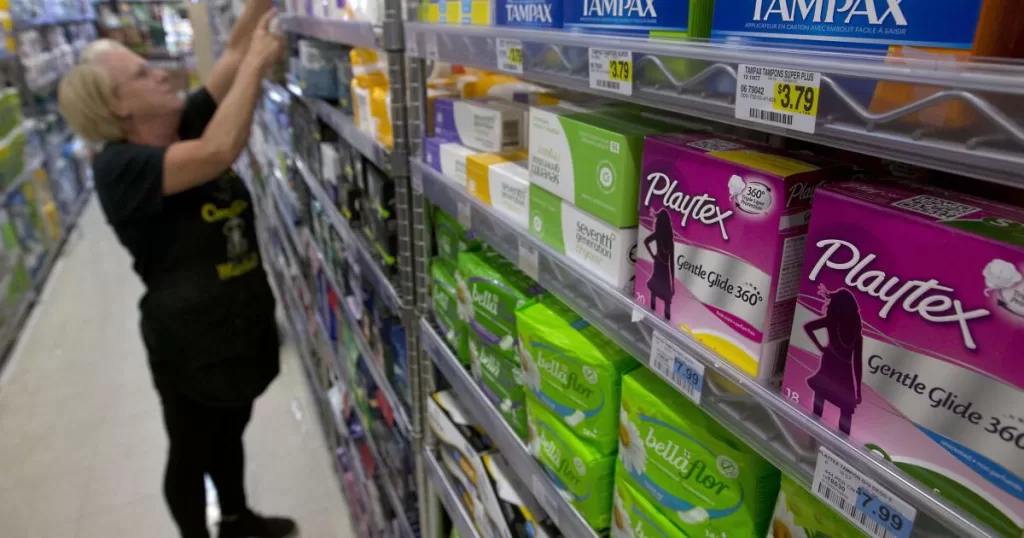Under a proposal introduced by Assemblymember Diane Papan (D-San Mateo), the state would be required to identify and assess the hazards of perfluoroalkyl and polyfluoroalkyl substances, or PFAS, in menstrual products and make that information available to the public.
Exposure to some PFAs — deemed “forever chemicals” because of their indestructibility — has been tied to kidney cancer, increases in cholesterol, liver dysfunction and preeclampsia, a serious pregnancy complication, according to the CDC. Recent research has found those chemicals in some brands of popular tampons and pads.
“This is a step in protecting women from PFAS in one of the most intimate ways that it can be exposed to our bodies,” Papan said at a news conference on Monday at the state Capitol.
A similar bill introduced last year saw bipartisan support and not a single “no” vote in the Legislature but was vetoed by Newsom despite saying he “strongly” supported its intent. The Democratic governor, who has otherwise championed policies protecting women’s health, said such chemical bans have proven difficult to implement and caused confusion.
“I am concerned that this bill falls short of providing enhanced protection to California consumers due to lack of regulatory oversight,” Newsom said in his veto message last year, adding that there has been “inconsistent” interpretations of existing laws by manufacturers regarding restrictions.
Newsom has signed laws that prohibit PFAs in food packaging and in cosmetics but vetoed other proposals to ban the chemicals in cleaning products and artificial turf, citing similar regulation problems.
The new iteration of the bill known as the Tampon Act directs the California Department of Toxic Substances Control to engage with industry leaders prior to issuing regulations in response to Newsom’s concerns.
“We feel that that is definitely something that will put the veto message to bed,” Papan said Monday.
If approved by the Legislature and governor, the law would go into effect in 2027 and would impose fines for companies found to violate the new prohibition on those chemicals and allow a path for consumers to sue.
Papan said there is no cost associated with the bill and that it could generate funding for the state by collecting fines from tampon producers found in violation of the new law.
One consumer study conducted in 2022 found that out of 23 tampon brands lab tested, 22% contained indications of PFAS. The study, conducted by the environmental watchdog group Mamavation in partnership with Environmental Health News, found traces of forever chemicals in some Playtex and Tampax products, as well as some tampons labeled as organic.
PFAs have also been found in nonstick cookware and drinking water, according to the EPA.
“We have to figure out the regulatory side of this issue… because we can’t choose not to address it,” Assemblymember Pilar Schiavo (D-Chatsworth) said Monday in support of the bill.
Tampons have been a point of legislation in California before. In 2021, Newsom signed a bill into law that requires public schools to offer free menstrual products. In 2019, he temporarily eliminated a sales tax on menstrual products.
